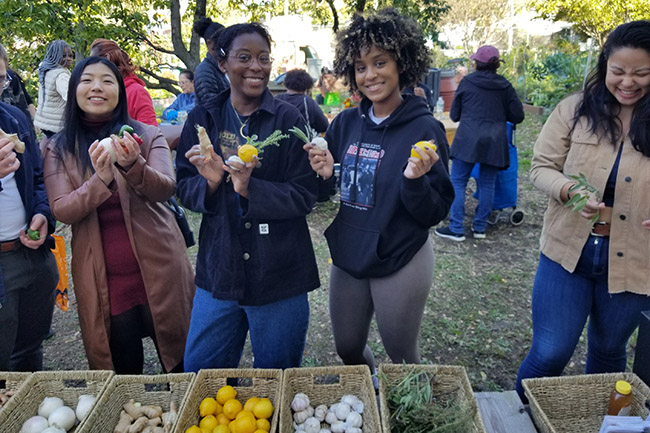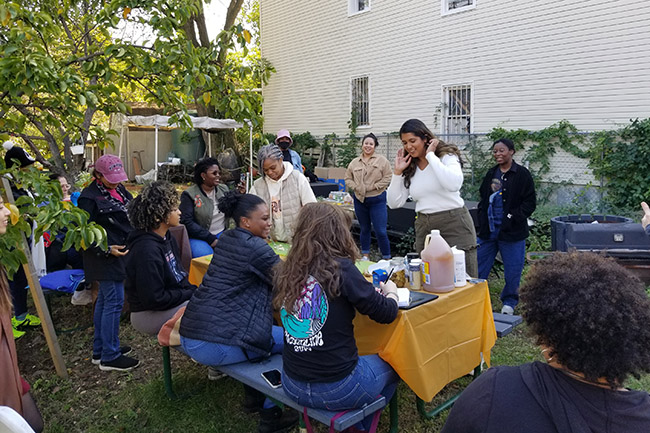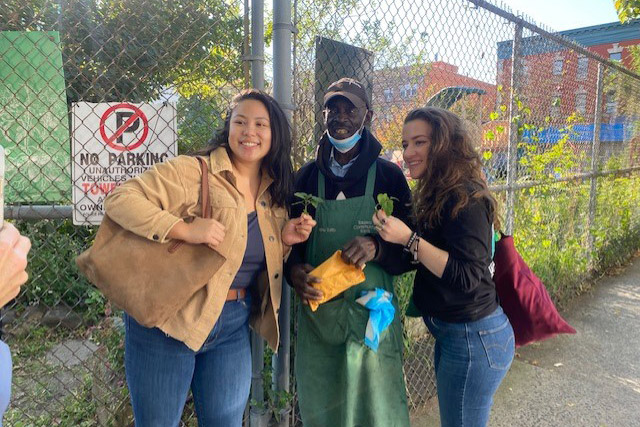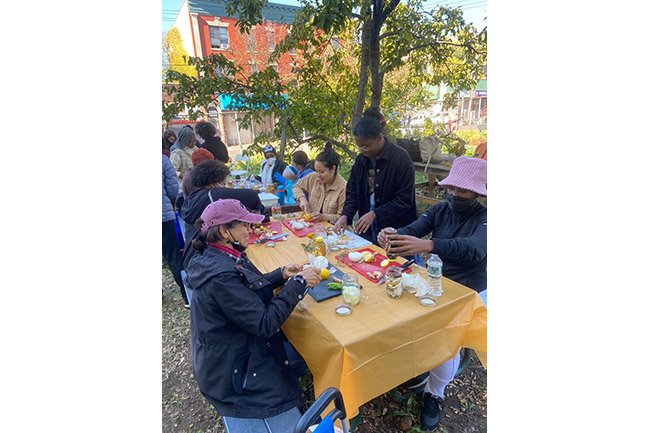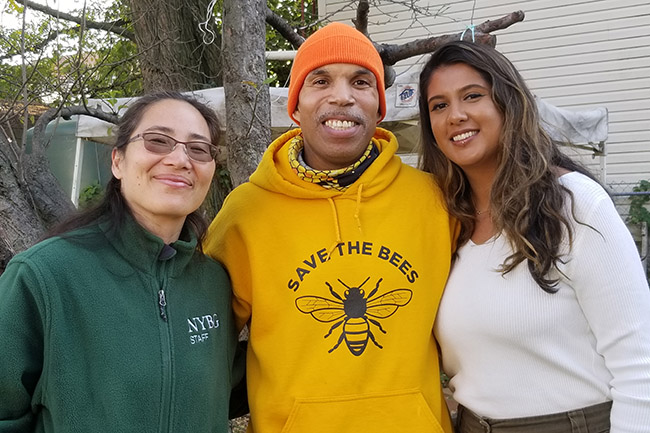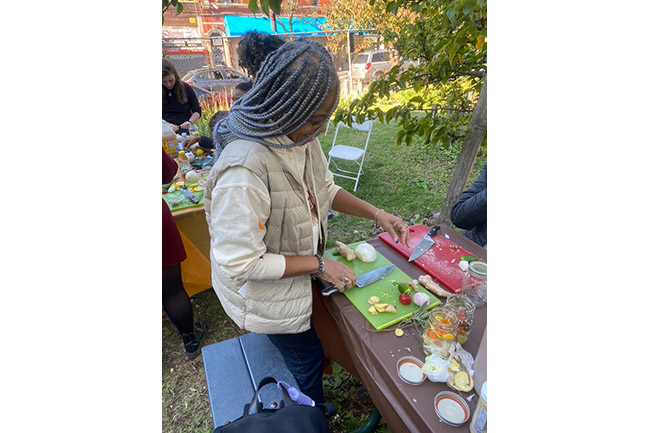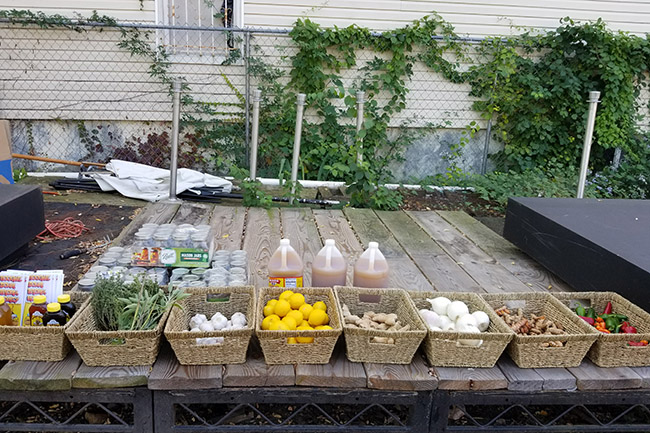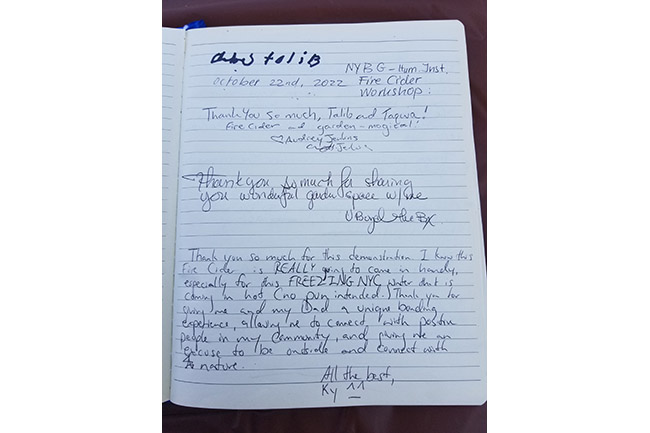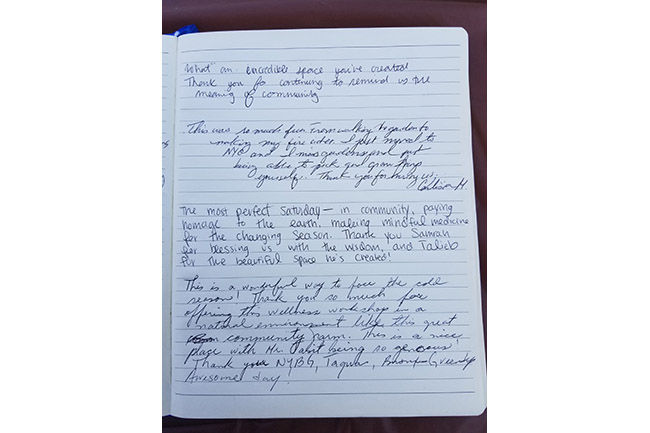Sharing the Craft of Fire Cider
Samrah Shoaib is the Program Manager of the Humanities Institute at The New York Botanical Garden.
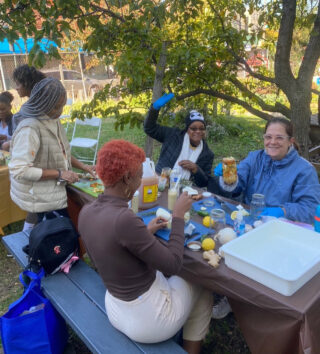 As this fall season comes to an end, I’m reflecting on the wonderful time we had at the first annual Fire Cider Workshop curated by the Humanities Institute of The New York Botanical Garden. It was a beautiful community celebration of the seasonal transition and a great way to prepare for the coming colder months.
As this fall season comes to an end, I’m reflecting on the wonderful time we had at the first annual Fire Cider Workshop curated by the Humanities Institute of The New York Botanical Garden. It was a beautiful community celebration of the seasonal transition and a great way to prepare for the coming colder months.
The workshop was hosted at the amazing Taqwa Community Farm, a half-acre community garden in the Highbridge neighborhood of the Bronx whose dedicated gardeners and caretakers were really excited about bringing together the local community in their space. This connection with Taqwa Community Farm would not have been possible without our Bronx Green-Up team. BGU has been an extremely important aspect of the Garden in cultivating relationships with Bronx urban farms and gardens. Additionally, BGU really supported the planning and execution of this event. Hosting the workshop at a community garden was a shift from how we normally do things, as we have always held our events at NYBG. This year, the Humanities Institute started brainstorming ways to make our workshops more accessible to the local community by bringing the workshops to them instead of bringing the participants to us.
We held the fire cider workshop on October 22, a beautiful sunny day with 67-degree weather. It felt like the day was meant to be used for a community gathering, one that centered our collective wellness and healing. As participants entered Taqwa, they were instantly taken by the beauty of the green space at a busy intersection surrounded by concrete buildings. More so, they couldn’t believe how big the farm was.
This wellness workshop was an important one for me, because the recipe is extremely accessible and affordable. It gives you the tools to take care of yourself, and all the ingredients can be found at your local grocery stores. Fire cider is an herbal tonic and a traditional remedy that stimulates digestion and supports respiratory wellness. As an immunity booster, it’s also helpful for warding off colds and flu during colder months. It is the perfect fall tonic that connects us to traditional practices used throughout different cultures. I even had a participant mention that her mother always made fire cider growing up, but she didn’t make that connection until she was at the workshop.
Once we mingled a bit, I began the workshop by doing a demonstration on how to make fire cider. I used ingredients such as garlic, ginger, onion, pepper, turmeric root, horseradish root, lemon, honey, apple cider vinegar, and thyme and sage provided by Taqwa Community Farm. The honey was locally sourced from Boogie Down Bronx Honey, and the demonstration was extremely interactive, as people had many questions and helpful comments. I explained the benefits of each ingredient while making the tonic, cutting it up, adding it to the jar, and topping it with apple cider vinegar and honey. The tonic then has the sit for four to six weeks before it is ready to be strained. The best way to use fire cider is to add it to food, salads, or just by taking a tablespoon every other day.
Participants then had the chance to try some pre-made fire cider, and make their own to take home. This portion of the workshop was full of joy, chatter, and laughter. People loved hands-on learning and the ability to take something home after the workshop. Towards the end of the gathering, Sean Flynn, the founder of Boogie Down Bronx Honey, was also able to join us. Community members were excited to engage with him and learn more about his honey and beehives all across the Bronx. Abu Talib, the founder of Taqwa Community Farm, kindly offered to let participants harvest vegetables and herbs from his farm to take home. He loved seeing people joyfully walking about his green space, and he mentioned that community building is really what it’s all about; he can’t wait for us to come back and do another one of these workshops. We absolutely will!
As community members left the farm, they left some wonderful comments in the Taqwa Community Farm notebook.
SUBSCRIBE
Enter your email address to subscribe to this blog and receive updates on new posts.
